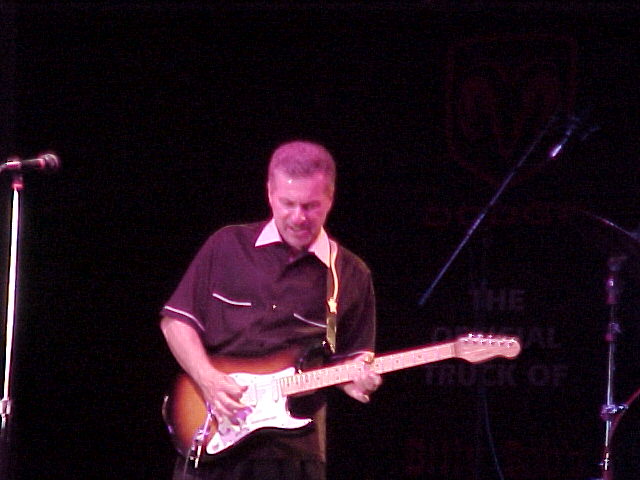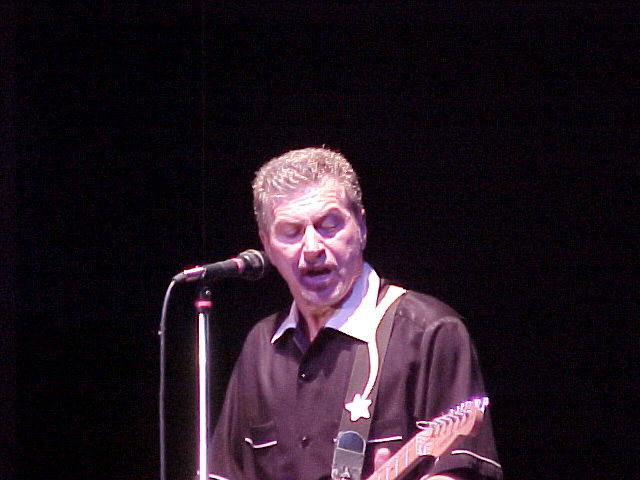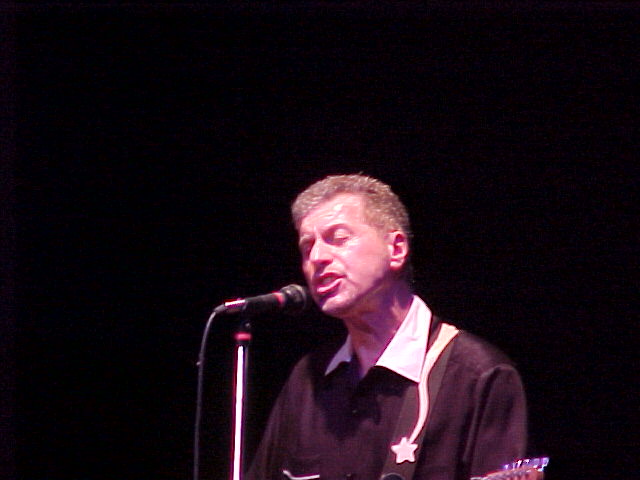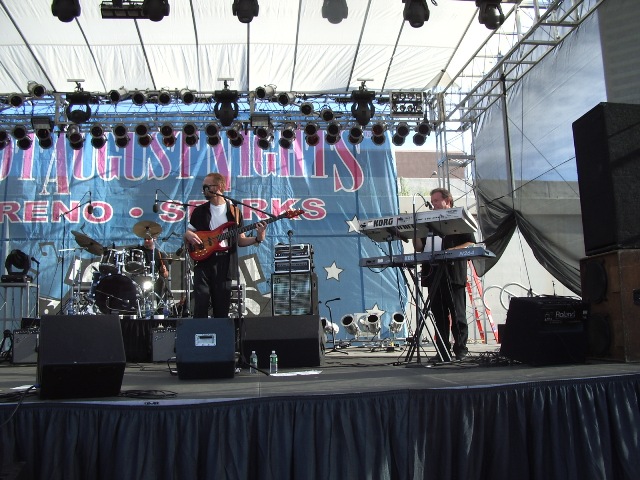Johnny Rivers
Johnny Rivers (born John Ramistella on November 7, 1942) is an
American rock and roll singer from New York City. He grew up in Baton Rouge and
was influenced by the distinctive music of Louisiana. He first became a hit at
the West Hollywood club Whisky A Go-Go, often by covering Chuck Berry songs. He
released several hits, including "Secret Agent Man", "Poor Side of Town",
"Summer Rain" and "Midnight Special". In the 1970s, more hits came, including
covers of The Beach Boys' "Help Me Rhonda" and Carl Perkins and Elvis Presley's
"Blue Suede Shoes". He continued touring into the 1990s, and began recording
again in 1998.
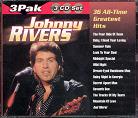
By the time Johnny Rivers hit
the Top 40 charts with his first big hit, "Memphis," he was already a star in
live performances. Born in New York in 1942 as John Ramistella, Rivers - his
name was given to him by the renowned rock figure Alan Freed - was making waves
by age 16. His family moved from New York to Baton Rouge, Louisiana in 1945 and
by age eight, young Johnny was playing guitar and by thirteen was leading his
own band. He was sixteen when he moved back to New York to try recording and met
Freed, who assisted him with getting a contract. Rivers' first single followed,
"Baby Come Bac,", but the next year the nasal-voiced singer with pretty good
guitar chops moved to Nashville to push his songwriting talents further along.
He paired up with Roger Miller, another new singer seeking a future, and they
wrote some tunes. Rivers was also making demo sides for some established stars,
including Elvis Presley and Johnny Cash. He had a hit from Ricky Nelson in 1960,
when Nelson recorded his "Make Believe." Another move, this time to Los Angeles,
occurred and Rivers spent the early '60s making singles for several companies,
large and small, with no chart success. He was 21 when he took on a brief gig at
the Los Angeles club Gazzeri's, which stretched from three nights to several
weeks, moving then to the popular disco club Whisky A Go Go. His audience grew
and he began to attract movie and television stars, such as Johnny Carson and
even Rita Hayworth, and began recording for the Imperial label, for which he
eventually placed thirteen hits in the Top 40, all but two in the Top 20. His
first album, JOHNNY RIVERS AT THE WHISKY A GO GO, spawned the Chuck Berry
masterpiece "Memphis" and it made it up; to No. 2, following that with another
Berry tune, "Maybelline," that was No. 12 and a few weeks later with "Mountain
Of Love," which peaked at No. 9. Rivers enjoyed making his own versions of songs
by writers such as Willie Dixon, Pete Seeger, the Four Tops, Smokey Robinson and
others along the way, nailing down thirteen hits between 1964-67. His biggest
single was his own No. 1 "Poor Side of Town" but he also scored big (No. 3) with
"Secret Agent Man." He had his best-selling album in REALIZATION as the '60s
wore down and had several critically acclaimed albums that failed to reach the
big time. His last chart success was in 1977 with No. 10 "Swaying' To the Music
(Slow Dancin')" but in 1975 he covered the Beach Boys "Help Me Rhonda" with
Brian Wilson on backup vocal and it was No. 22 on the chart. He continued into
the '80s but failed to repeat his earlier success. However, Rivers did capture
two writing Grammys in 1967 for "Up Up and Away," a big hit for the Fifth
Dimension.
|
|
